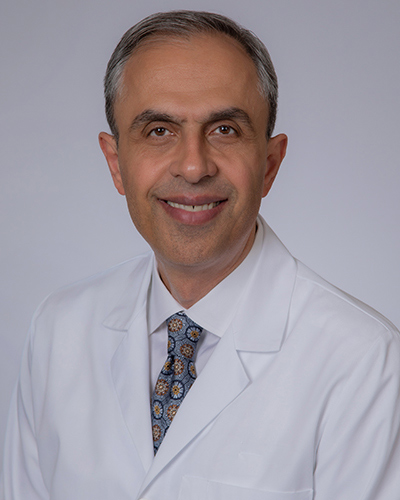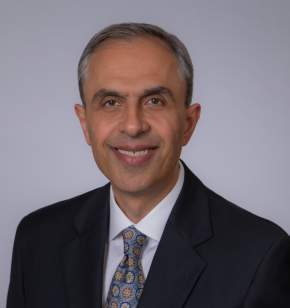Surviving with Ependymoma


Ependymoma is a type of tumor that can develop within the brain or spinal cord. Ependymomas typically begin as small growths that originate from ependymal cells lining the passages of the spinal cord and brain. Ependymal cells are neuronal support (glial) cells that play a crucial role in producing cerebrospinal fluid, removing waste from the brain, and supporting brain metabolism.
Ependymomas can develop at different rates in each patient. Symptoms may also differ based on the tumor's location and aggressiveness (how fast it grows and its likeliness to spread) and the patient's overall health and age. Typically, ependymoma tumors are found in the brain of children, whereas they more commonly form in the spinal cord of adults.
Ependymomas can cause noticeable symptoms, including:
- Weakness or tingling in the arms or legs
- Headaches
- Neck discomfort
- Changes in vision, such as blurred vision, loss of vision, or jerky eye movements
- Nausea and vomiting
- Numbness, difficulty walking, and loss of balance
- Seizures and convulsions
Ependymomas located in the posterior fossa of the brain can block the flow of cerebrospinal fluid (CSF), which may lead to hydrocephalus. In younger children, this can cause an abnormal enlargement of the head. Symptoms such as frequent loss of balance and lack of coordination also may occur. It is important to seek medical attention if you or your child experiences any of these symptoms.
Prognosis of Ependymoma
The location and grade of the ependymoma are important factors that influence prognosis and survival rates. Ependymomas found in the brainstem or spinal cord may be more challenging to treat. High-grade ependymomas are more aggressive and tend to grow and spread more quickly than low-grade tumors.
Age and overall health of the patient are also important factors that can affect survival rates. Younger patients may have a better prognosis than older patients, and patients with good overall health may be better able to tolerate aggressive treatments.
Additionally, the type of treatment plays a role in determining prognosis. The more of the tumor that can be removed, the better the prognosis. Thus, a tumor located in areas that are surgically accessible and distant from critical structures are more likely to be fully removed, resulting in a lower recurrence rate. However, other factors, such as the grade of the tumor, can also influence the likelihood of the tumor growing back.
It's important to note that each individual case is unique. Discuss the prognosis and recurrence risk with a qualified healthcare provider who can provide a more personalized assessment based on individual circumstances.
Living With Ependymoma
Living with ependymoma can be a challenging experience, both physically and emotionally. Depending on your tumor's location and size, you may experience headaches, nausea, vomiting, seizures, vision problems, and difficulty walking or balancing. These symptoms can make everyday tasks such as getting out of bed or going to work difficult.
After brain surgery, recovery may take weeks or months, and many people with ependymoma also require radiation therapy, which can cause fatigue, skin irritation, and hair loss. Chemotherapy may also be needed, and add on nausea and vomiting.
Processing the diagnosis and your future outlook is difficult, and you may experience a wide range of emotions, including fear, sadness, anger, and frustration. Keeping positive and hopeful can be a challenge, especially while living with the uncertainty. No two medical cases are exactly the same, and it can be difficult for your medical team to predict exactly how the disease will progress.
Despite the challenges of living with ependymoma, there are ways to cope and improve your quality of life. Here are a few strategies that may be helpful:
- Build a support network: Living with ependymoma can be isolating, but remember you are not alone. Reach out to family and friends for emotional support, and consider joining a support group for people with brain tumors. You may find it helpful to talk to others who are going through similar experiences and share tips and advice.
- Take care of your physical health: Although it can be difficult, prioritize your physical health by eating a healthy diet, exercising regularly, and getting enough sleep. These habits can help to improve your energy levels and overall well-being.
- Manage stress: Living with ependymoma can be stressful, so try to find healthy ways to manage this stress. Consider relaxation techniques such as meditation or yoga, or finding a creative outlet such as painting or writing.
- Stay informed: Knowledge is power, so keep informed about your diagnosis and treatment options. Ask your doctor questions and perform an online search to learn more about ependymoma and how it can be treated.
- Seek professional help: Always seek professional help if you are struggling to cope with the emotional toll of ependymoma. Consider talking to a therapist who specializes in working with people with cancer or chronic illnesses.
Living with ependymoma is undoubtedly a challenging experience, but remember there is hope and you are not alone. Advances in medical technology and treatment options have greatly improved the prognosis for people with ependymoma, and many people are able to live long, fulfilling lives after diagnosis. With the support of loved ones and healthcare professionals, you can overcome the obstacles presented by ependymoma and live a full and meaningful life.
Why should you have your surgery with Dr. Cohen?
Dr. Cohen
- 7,500+ specialized surgeries performed by your chosen surgeon
- More personalized care
- Extensive experience = higher success rate and quicker recovery times
Major Health Centers
- No control over choosing the surgeon caring for you
- One-size-fits-all care
- Less specialization
For more reasons, please click here.
Key Takeaways
- Symptoms of ependymomas depend on the size, location, and aggressiveness of the tumor.
- Prognosis after an ependymoma diagnosis depends on the type, grade, and location of the tumor plus the patient’s age and overall health.
- Building a support network, prioritizing your health, managing stress, keeping yourself informed, and visiting a therapist are a few things you can do to help live a meaningful life after an ependymoma diagnosis.











